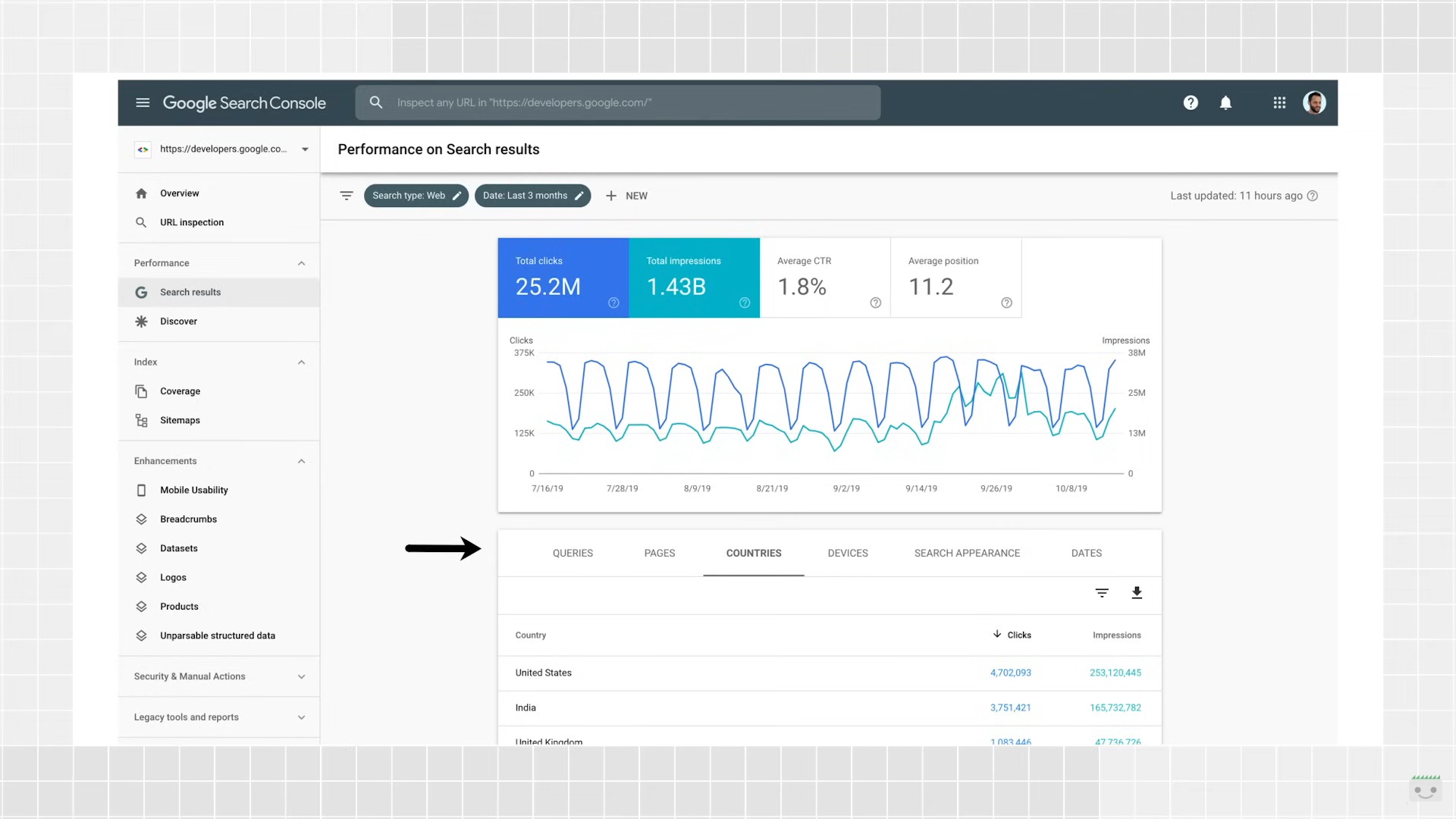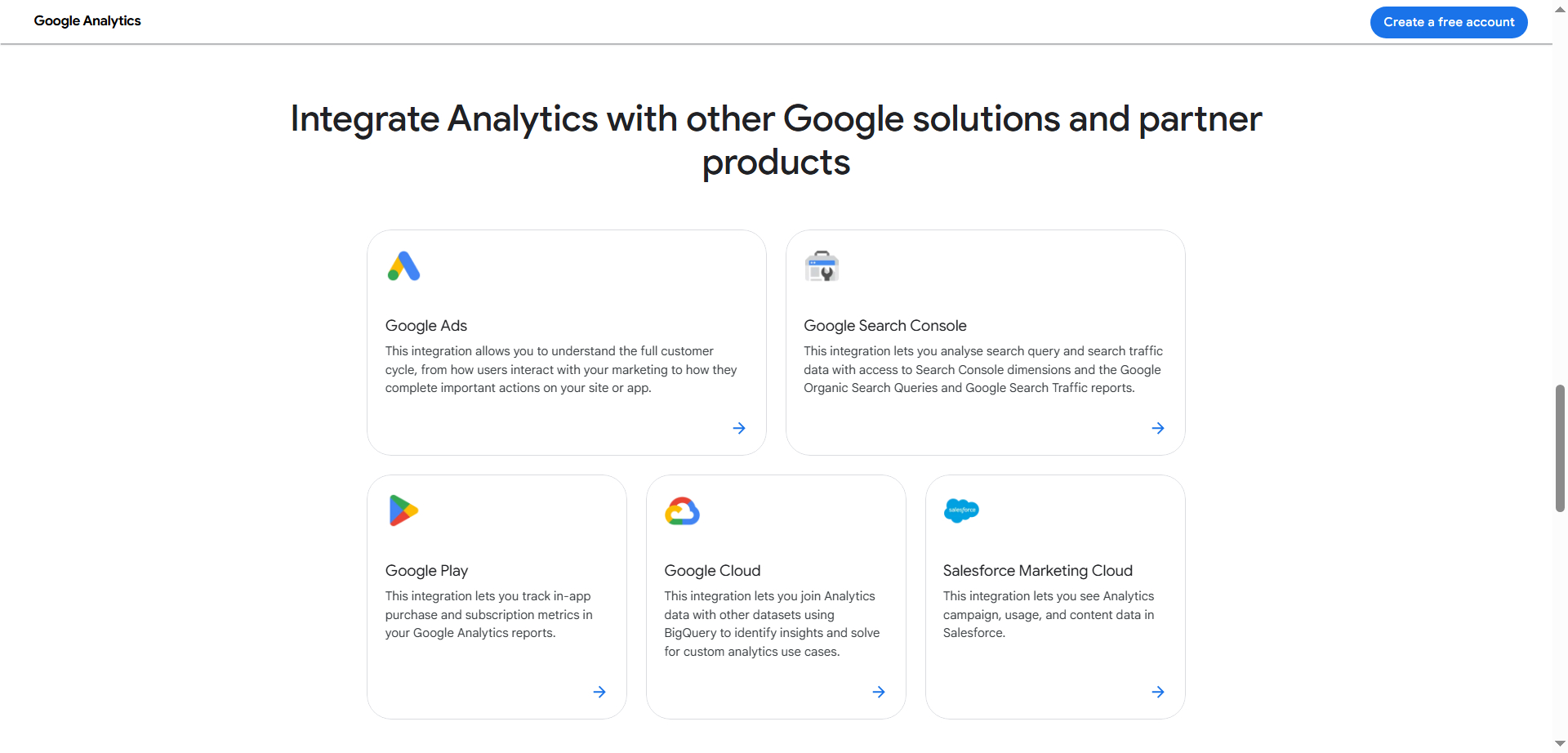In digital marketing, you’ve probably heard about Google Search Console and Google Analytics. Both are free, powerful SEO tools from Google, but here’s the thing: they serve different purposes, and understanding their unique strengths will transform how you approach your digital marketing strategy.
Let’s learn the difference between Google Search Console vs. Google Analytics, and what makes each tool special.
Google Search Console (GSC) is your direct line of communication with Google’s search engine. It shows you exactly how Google sees your website and how your site performs in search results. When someone searches for something on Google and your website appears in the results, GSC tracks that interaction. The primary focus of Search Console is organic search visibility. It answers questions like: What keywords are bringing people to my site? How often does my site appear in search results? Are there any technical issues preventing Google from indexing my content properly? Google Analytics (GA) takes a broader view of your website’s performance. While Search Console focuses on how people find you through search, Analytics tracks everything that happens once they arrive on your site, regardless of how they got there. This tool helps you understand user behavior, conversion patterns, and the effectiveness of all your marketing channels. It’s about the complete customer journey, from acquisition through engagement to conversion. The fundamental difference lies in their scope and purpose. Search Console is search-focused and looks at how users discover your site through Google search. Analytics is behavior-focused and examines what users do after they’re on your site. Data Collection Methods: Search Console pulls data from Google’s index and results pages, tracking appearances in search results (even without clicks). Analytics uses JavaScript tracking code to record visits once users land on your site, from any traffic source. Metrics and Terminology: Search Console counts clicks only from search results. Analytics tracks sessions, covering visits from all sources. Search Console includes impressions (site visibility in search results), which Analytics does not track. Historical Data: Search Console retains data for 16 months. Analytics can store data much longer, depending on retention settings, making it better for long-term analysis. Privacy and Sampling: Search Console hides some queries as “anonymous” for privacy. Analytics may use sampling for high-traffic sites in the free version, which can reduce accuracy in detailed reports. You should use Search Console when you need to optimize your search presence. If you’re working on an SEO strategy, this is your go-to tool. It’s essential for keyword research based on actual search data, identifying which queries bring traffic and which show potential for improvement. Plus, technical SEO issues require Search Console’s insights. When pages aren’t ranking, GSC helps you understand why, whether it’s indexing problems, mobile usability issues, or Core Web Vitals failures. Content optimization also benefits from Search Console’s query data. You can identify pages with high impressions but low CTR, suggesting opportunities to improve titles and meta descriptions. Even better, the GSC allows you to find pages ranking on page two that could reach page one with targeted improvements. Google Analytics shines when you need to understand user behavior and measure business outcomes. It’s indispensable for tracking conversion rates, understanding user journeys, and measuring ROI across all marketing channels. Google Analytics goes hand in hand with audience research to understand who your customers are and what they want. The demographic and interest data help shape content strategy, product development, and marketing messages. Campaign performance tracking also demands Analytics. Whether you’re running paid ads, email campaigns, or social media promotions, Analytics shows you which efforts drive results and deserve more investment. The real power comes from using both tools in tandem. They complement each other perfectly, providing a complete view of your digital presence. Link both tools to get enhanced data. When you connect Search Console to Analytics, you get search query data directly in your Analytics reports, combining the best of both worlds in one interface. For companies investing in SEO services in the UK, using both tools together provides the perfect balance of search insights and user behavior tracking Start with Google Analytics if you’re focusing on overall website performance, conversion optimization, or multi-channel marketing. Begin with Google Search Console if SEO is your primary concern or if you’re trying to establish an organic search presence. The learning curve for both is manageable, but Search Console is generally simpler to understand initially. Analytics offers more depth and complexity, which becomes valuable as your skills grow. Moiz Banoori is a seasoned Digital Marketing professional with over eight years of expertise in content creation and digital journalism. At REDLUMB, he spearheads teams to craft impactful SEO strategies that drive online growth and visibility. With a background in journalism, Moiz leverages his expertise in digital marketing to develop effective strategies that boost online visibility and help clients achieve their goals.
Overview Table
Feature Google Search Console Google Analytics
Main Focus Search visibility & SEO User behavior & conversions
Data Source Google Search index On-site tracking code
Key Metrics Impressions, clicks, CTR, indexing Sessions, page views, conversions, traffic sources
Best For SEO optimization & fixing technical issues Measuring performance & ROI across all channels
Data Retention 16 months Longer (customizable)
Ease of Use Simpler, SEO-focused More complex, broader insights
Together Finds how users discover you Shows what they do after arriving
Google Search Console

Key Features of Google Search Console
Google Analytics

Key Features of Google Analytics
Key Differences Between the Tools
When To Use Google Search Console
When To Use Google Analytics
How To Use Both Tools Together





